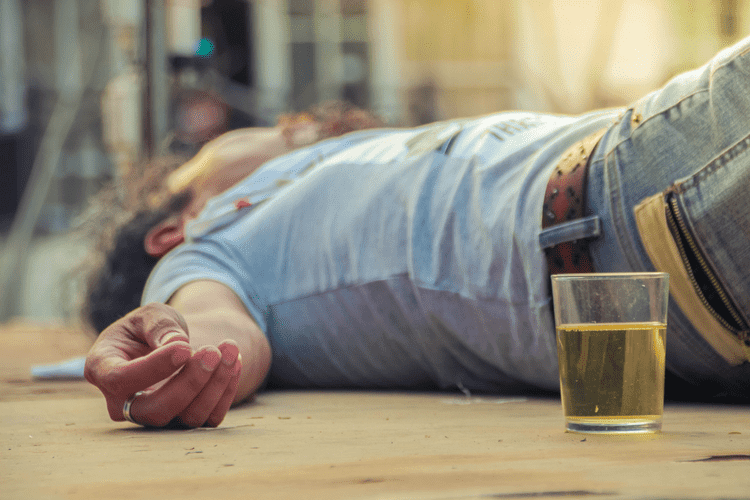“Without anyone changing the rules, or making any bold statement, just with social pressure, I think we’ll see a greater shift away from alcohol-centred activities,” he says. The Recovery Village Columbus offers several treatment options, including medical detox, inpatient rehab, and more, to provide you with personalized care at our Joint Commission-accredited facility. Contact a Recovery Advocate today to take the first step toward living an alcohol-free life. Regular after-work drinking can lead to a myriad of health issues, impacting various organs and bodily systems. A standard drink, as defined by health guidelines, can still pose significant risks if consumption becomes frequent and excessive.
Healthy Alternatives to After-Work Drinking
- Workplace alcohol policies are crucial in setting limits on alcohol use and establishing consequences for employees who do not observe these limits.
- If you suspect that someone has alcohol poisoning — even if you don’t see the classic symptoms — get medical help right away.
- Regular after-work drinking can significantly impact an individual’s work performance and professional relationships.
- Worrying about whether or not you’re drinking too much—or whether your nondrinking is being noticed or judged—puts additional pressure on workers who already have enough on their plate.
- You’ll probably need to play around with several options before you hit on something that feels just as good (or better) than alcohol to kick off your night.
Is it based on observation by others, such as a co-worker seeing an employee drinking in a car, on break or at lunch? Or is the employee slurring words, having difficulty with motor skills or falling asleep at work? Employers need to make sure there’s not some other reason, such as a reaction to medication or a medical condition such as Parkinson’s disease or narcolepsy.
Signs of Alcoholism at Work: Can One Get Fired?
During this time professionals will be by the person’s side through the whole experience. Sometimes, people find solace in drinking to ease the tension in their work-life. It’s important to ease this stress without always resorting to drinking after work. While it is okay to enjoy a drink here and there, it is not normal to rely on drinking. “It might seem like a nice gesture to subsidise alcohol at these events, but it normalises alcohol within the workplace, which can be exclusionary for those who don’t drink,” says Emma Catterall, evidence and research lead at Drinkaware. Alcoholic employees are prone not only to the psychological effect of alcohol that includes anxiety and depression but also to serious physical health problems.
The biology of addiction
Even after a prolonged period of abstinence, conversations between the neurons don’t return to normal. Alcohol has been linked to disruptions in sleep, impairment in judgement and it can negatively affect relationships, according to Harvard T.H. Chan School of Public Health. All of these factors can take a significant https://theillinois.news/top-5-advantages-of-staying-in-a-sober-living-house/ cascading toll on your mental health. The American Heart Association states that drinking in excess — over the recommendation — can result in high blood pressure, cardiomyopathy or cardiac arrhythmias. If drinking hard liquor every night takes you over the recommended limit, you might be seriously damaging your heart.

About recovery

Outpatient treatment is best for mild alcohol addictions, and it allows patients to attend doctor and therapy visits while still living at home. Inpatient treatment is best for moderate to severe alcohol addictions or people who have relapsed. Inpatient treatment involves living on-site at the detox or rehab facility, an approach that keeps patients in a healing environment and allows for Top 5 Advantages of Staying in a Sober Living House better monitoring and treatment. Setting limits on alcohol consumption is a growing trend among health-conscious individuals. According to recent studies, a significant proportion of alcohol consumers are actively trying to reduce their intake, with 83% doing so due to health concerns. This includes efforts to improve overall wellness and, for some, to support weight loss endeavors.
- But thank God he said no because I soon realized that I was exactly like everyone else there.
- In some industries, post-shift pints to unwind are par for the course; in others, drinking is woven into the fabric of the work itself, with client relationships built over boozy lunches and dinners.
- Getting involved in rounds means you normally end up drinking at the fastest drinker’s pace.
- If the employer knows or should have known about the alcohol misuse, it should take timely and effective steps to address it, he said.
- Generally, the more alcohol you drink, the more likely you are to have a hangover the next day.
 Firewall Training in India Cyber Security Training & Firewall Training Provider in India
Firewall Training in India Cyber Security Training & Firewall Training Provider in India











